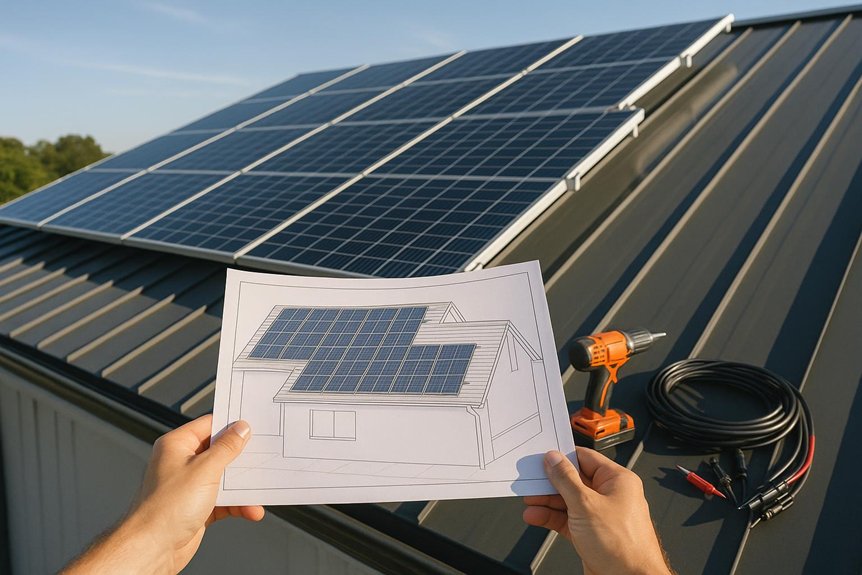You can install solar panels without MCS certification, but doing so carries significant risks. You may face legal issues, such as non-compliance with UK standards and potential penalties, plus difficulties securing insurance coverage or selling surplus energy to the grid. Additionally, non-MCS installations can reduce your property’s value and complicate future sales. While upfront costs might be lower and installation faster, the long-term financial and regulatory consequences often outweigh these benefits. Exploring these factors further will provide a clearer picture.
Legal and Regulatory Implications of Installing Solar Panels Without MCS
Although installing solar panels without MCS accreditation might seem like a cost-saving shortcut, it carries significant legal and regulatory risks that you need to evaluate carefully. Without MCS certification, your installation may not comply with UK safety and quality standards, which could lead to legal challenges. You might also find yourself ineligible to sell surplus energy back to the grid, missing out on potential income. Local councils often require MCS accreditation for planning permission, so unaccredited systems risk being deemed illegal, possibly resulting in penalties or removal orders. Additionally, insurance providers may refuse coverage for non-MCS installations, exposing you to financial liabilities if accidents occur. Finally, the lack of certification can negatively affect your property’s resale value, as buyers may view the installation as a liability. Furthermore, using an MCS-certified installer ensures compliance with regulatory standards and provides assurance of quality workmanship.
Benefits and Drawbacks of Non-MCS Solar Panel Installations
Choosing to install solar panels without MCS accreditation presents a mix of benefits and drawbacks that deserve careful consideration. While you may save on initial certification costs and have more installation flexibility, you face significant risks. Non-MCS systems often struggle with grid feed-in eligibility, insurance coverage, and regulatory compliance. Additionally, improper installation might lead to reduced efficiency and higher maintenance expenses. Below is a concise comparison:
| Benefits | Drawbacks |
|---|---|
| Lower upfront costs | Limited eligibility for feed-in tariffs |
| More installation flexibility | Possible insurance and compliance issues |
| Avoids certification delays | Potential negative impact on property value |
You should weigh these factors carefully, as non-MCS installations can complicate long-term savings and legal standing. Furthermore, solar panel efficiency can be significantly impacted by improper installation practices.
